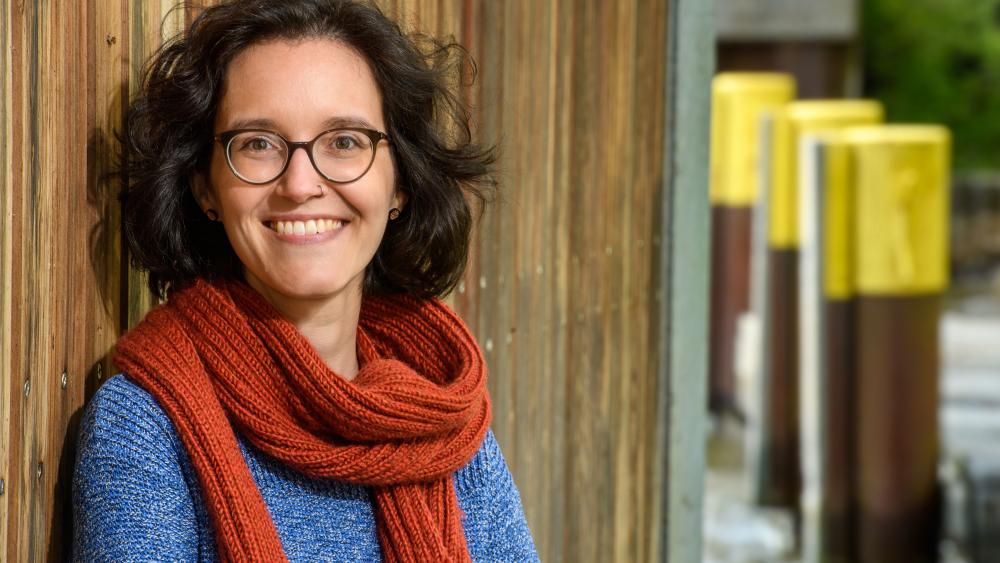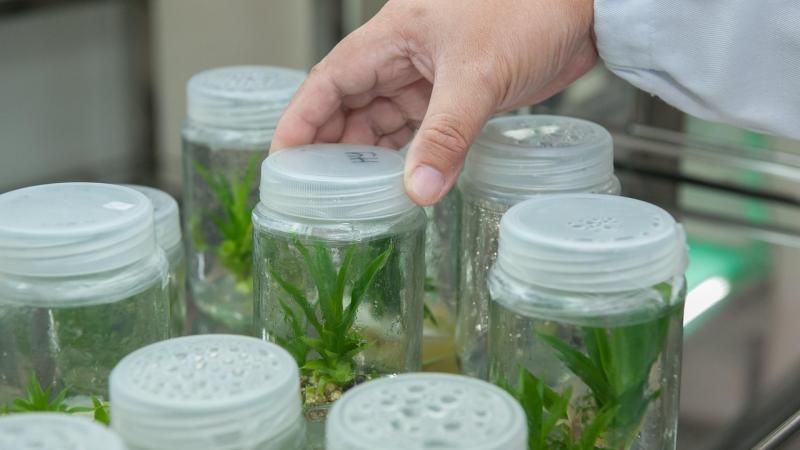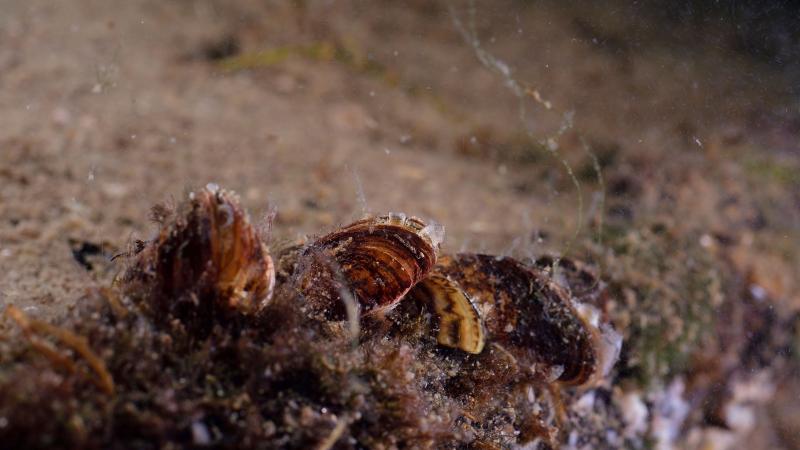
Stephanie Spahr in front of the IGB boathouse. I Photo: David Ausserhofer
Ms Spahr, you worked in the field of environmental chemistry in Tübingen and your research at the IGB also focuses on pollutants in the environment. A broad field and an important social issue! Why is the field also scientifically exciting?
In fact, the topic interests me both socially – so in the larger context – but also in the scientific and methodological approach. Therefore, I often deal with very applied questions. For example, in a project in the water-scarce city of Los Angeles, California, we investigated how polluted stormwater runoff can be treated and made usable using biochar filters. In this pilot study, we managed to remove trace organic contaminants such as biocides and flame retardants from stormwater using this energy- and cost-efficient technology. A really simple principle. And yet you can only develop and deploy such a method if you understand the complex processes that lead to the removal of pollutants.
You seem to be a very solution-oriented person, would you identify with that?
Yes, that’s me. I want to find out how we can improve water quality in a sustainable way. So I'm particularly interested in where water pollution comes from, how it acts upon and interacts with the environment. Ideally, we will find ways to minimize sources of pollution in the future. However, as so many chemicals are produced and used for so many different purposes, we need clever solutions to eliminate contaminants from water. To detect and measure pollutants in the first place, I also find the development of new analytical methods very exciting. For example, the use of stable isotopes to determine the fate and degradation mechanisms of pollutants in soils and water bodies.
So what kind of water do you find most exciting?
To be honest, clean and safe water is of course the goal. But scientifically, pollutants in water are tremendously fascinating and challenging. My current favorite in my role as a researcher: stormwater runoff. Rain that flows over roads or agricultural land can wash away a variety of substances such as tire wear or pesticides and carry them into water bodies. However, we often don't know which chemical mixtures are mobilized and how they affect the environment. I think it is very important to investigate this, especially because intense rain events could become more extreme in the future. In addition, stormwater is an underestimated resource. Especially in drought-stricken regions like California, the use of stormwater runoff for urban water supply is already being realized. However, climate-adapted stormwater management is a topic that is getting more and more attention everywhere, including in the field of urban planning.
The current concept of Berlin as a sponge city comes to mind.
Exactly, that is a well-known example. The idea is to reduce sealed and impervious surfaces, and instead create more water storage capacity through urban green spaces and water bodies. Rainwater should be retained where it falls. During heavy rainfall, this relieves the sewage system and protects water bodies. At the same time, the city becomes greener and more livable, and evaporation helps to cool the city during periods of heat. Another aspect that particularly interests me is the water treatment capacity of this so-called green-blue infrastructure. There are many open questions and a lot of untapped potential for pollutant removal to obtain clean water for ecosystems and use in the urban water system.
Do you think Berlin will drive this transformation in urban planning and water management?
The concept is there and we have already seen several successful examples in Berlin involving green roofs or multifunctional swales. Certainly, there is also a commitment on the part of those responsible, and a paradigm shift is taking place – not only in Berlin, but worldwide. However, it is not easy to create more space for water and nature in densely urbanized areas. Implementing new measures and ideas on a large scale requires a good cooperation between various actors from the general public, industry, politics, and research. And the courage to dare something new.
Is that why it is important to you to promote transdisciplinary cooperation? You are a fellow in the Postdoc Academy for Transformational Leadership of the Robert Bosch Foundation.
The focus of this Postdoc Academy is to promote the qualification of researchers for transdisciplinary leadership tasks. I am very happy to be part of it, because the principle of integrative research is still not adequately practiced in my opinion, and I want to learn more about it myself and also spread it in my group. By the way, I think that the IGB is a highly suitable place for this because basic and applied research go hand in hand. My impression is also that the researchers at the IGB are very well networked. Not only within the scientific community, but also through their engagement with other actors in water management.
Shortly after you came to the IGB, you were immediately involved in knowledge transfer - you contributed to an IGB feedback on the possible revision of the EU list of pollutants affecting surface and groundwater, as well as to a scientific assessment on the siting of large-scale industrial projects in water-scarce areas.
Yes, indeed! That was a great start. On the one hand, I was able to network quickly with colleagues from the various research groups. And on the other hand, I experienced the many different ways in which one can contribute one’s research knowledge to projects at IGB.
We wish you, Stephanie, all the best and continued success!





